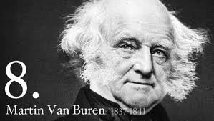Good 27º everything frozen morning.
Yesterday clear sky and we topped at 61º.
Picture of the Day... ?
Interesting about a city with a strange name....
According to local historians, the Piankeshaw Indians established a village in the vicinity of modern Bone Gap prior to the arrival of permanent European settlers. This village was situated in a gap in the treeline. When the first permanent European settlers arrived in 1830, they found a large number of discarded animal bones left by the Piankeshaw inhabitants, and named the settlement "Bone Gap."
Surnames among early settlers included Rude, Morgan, Knowlton, Phillips, Leach, Gibson, Rice, and Gould, the latter belonging to Methodist minister Ebenezer Gould. Many of the settlers came from northeastern states, and the community that developed became known as "Yankeetown." This area, now known as "Old Bone Gap" as it was situated just east of the current village, consisted of a store, post office, doctor's office, blacksmith shop, a Baptist church, and a Methodist parsonage. The current village of Bone Gap voted 38-7 to incorporate on March 29, 1892.
Bone Gap is located in northeastern Edwards County at 38°26′49″N 87°59′47″W. It is 7 miles northeast of Albion, the county seat. Illinois State Route 130 passes just to the west.
According to the 2010 census, Bone Gap has a total area of 0.6 square miles, all land.
As of the census of 2000, there were 272 people, 99 households, and 80 families residing in the village. The population density was 450.5 people per square mile. There were 110 housing units at an average density of 182.2 per square mile. The racial makeup of the village was 99.26% White, 0.37% Native American and 0.37% Asian.
There were 99 households, out of which 38.4% had children under the age of 18 living with them, 67.7% were married couples living together, 12.1% had a female householder with no husband present, and 18.2% were non-families. 18.2% of all households were made up of individuals, and 9.1% had someone living alone who was 65 years of age or older. The average household size was 2.75 and the average family size was 3.07.
From Mr. Food
What could be better on a cold winter night than a skillet supper bursting with the hearty flavors of smoked sausage and cabbage? Nothing! And few can beat the ease of our Skillet Sausage 'n' Cabbage.
Skillet Sausage and Cabbage
- 1 (14-ounce) package kielbasa sausage, cut into 1-inch pieces
- 1 tablespoon vegetable oil
- 1 onion, thinly sliced
- 1 green bell pepper, cut into thin strips
- 6 cups coarsely chopped cabbage
- 1/2 cup chicken broth
- 1/2 teaspoon caraway seeds
- 1/2 teaspoon salt
- 1/4 teaspoon black pepper
- In a large skillet that has been coated with cooking spray, saute kielbasa over medium heat 3 to 5 minutes or until browned. Remove to a plate.
- In the same skillet, heat oil until hot; saute onion and bell pepper 5 minutes.
- Add cabbage and cook 8 minutes, stirring occasionally. Add sausage, broth, and remaining ingredients.
- Reduce heat to medium-low and cook 5 minutes or until cabbage is tender. Serve immediately.
Historically this date......
And births this date include....
All I know. Nuff said. Happy Saturday. Ciao.
xo Sue Mom Bobo
On December 5th, National Repeal Day commemorates the day Prohibition ended in the United States.
Prohibition grew out a practice of moderation rooted in the Protestant churches in America. By the 1830s, consumption of alcohol, especially hard spirits, was affecting the nation. Most participants were male. Those who supported who joined the Temperance movement saw alcohol as the root of all evil. The movement took hold at a time when women had few rights, and the country was debating slavery. Ethics and mores were changing. The Temperance movement shifted the view on alcohol use from moderation to eradication.
The following decades would see organizations such as the Prohibition Party, Women’s Christian Temperance Union, and Anti-Saloon League formed. By 1838, Tennessee would pass the first legislation prohibiting the sale of alcohol. Some new states would enter the union as dry states. In 1919, the 18th Amendment was ratified, banning the production, transportation, and sale of alcoholic beverages. However, the legislation did not prohibit the consumption of such drinks.
The Amendment went into effect in 1920, and numerous businesses closed. Beyond the loss of brewers and bars, governments lost tax revenues. Additionally, the cost of enforcing prohibition was expensive. Those determined to produce, transport, and sell alcohol created a black market that crisscrossed the nation. Their illicit methods became notorious and the stuff of legend. In 1929, the stock market crashed.During the years of Prohibition, use of the term “gangster” increased. The term “moonshine” reached its peak usage.
Prohibition’s “great experiment” was a significant failure. The term “bootlegger” would reach its peak usage as Prohibition neared the end of its lifespan. Congress proposed the 21st Amendment to the Constitution on February 20, 1933. The amendment repealed the 18th Amendment and was ratified on December 5 that year.
HOW TO OBSERVE
Learn more about the history of the 18th and 21st Amendments. Drink your favorite cocktail. Try a new cocktail. While you do, be sure to invite friends to join you.
As always, drink responsibly. Never drink and drive.
NATIONAL REPEAL DAY HISTORY
The day Prohibition ended has been celebrated since 1933. Newspapers across the country reported repeal celebrations. Al Capone was even reported as praising the end of prohibition from his prison cell. Some areas postponed celebrations until the 6th, but distilleries geared up, ready for production.
In the last couple of generations, fascination with the Prohibition years, styles, and history has grown. Celebrating the 21st Amendment has increased.



















